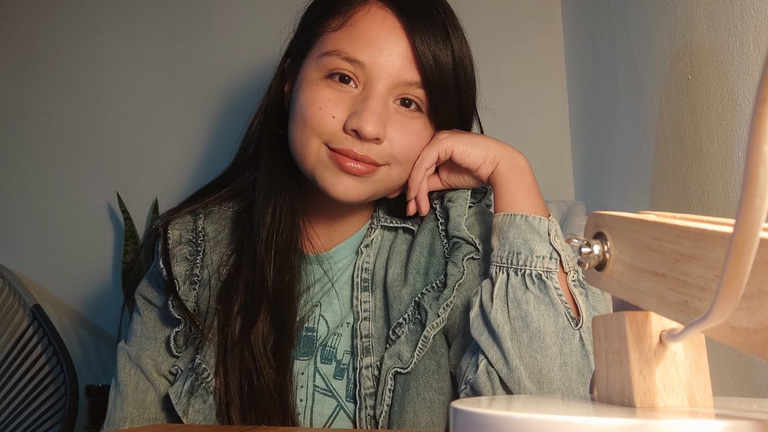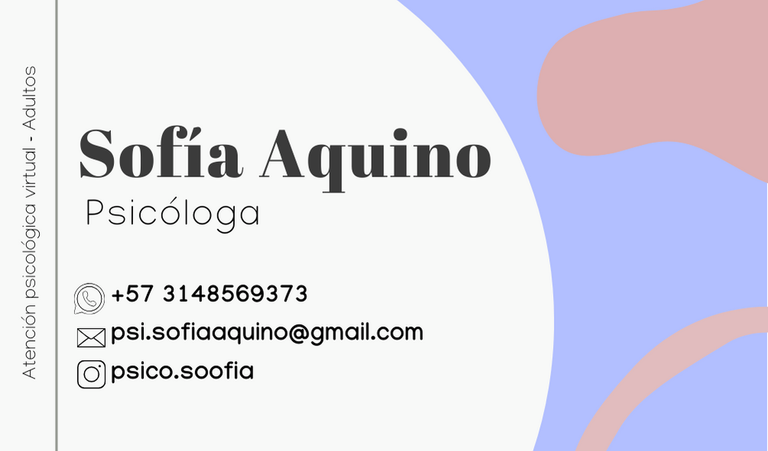Cambios que ocurren en las personas al asistir a consulta psicológica (independientemente del motivo de consulta) [ESP-ENG]

Las razones por las cuales las personas asisten a consulta psicológica son múltiples. Sin embargo, en mi experiencia profesional, independiente del motivo por el cual han decidido iniciar un proceso psicoterapéutico, los pacientes experimentan una serie de cambios y mejorías similares aunque cada caso sea completamente distinto. Miremos, en líneas generales, cuáles son estos cambios comunes a los que me refiero.
- Relación consigo mismo: Todo proceso de psicoterapia requiere de ciertos niveles de introspección y reflexión sobre uno mismo, pensamientos, emociones y comportamientos. En la primera consulta es frecuente que el paciente se sienta abrumado o confundido en relación a su malestar, no sabe identificar muy bien qué tipos de pensamientos está teniendo, por qué se siente de cierto modo... La terapia ayuda mucho a darle orden, organización y signficado a ese mundo interno. La relación con ellos mismos mejora porque atienden y entienden muchos aspectos de sí que anteriormente habían pasado por alto o que no entendían.
Bienestar y satisfacción general: Muchos pacientes llegan a consulta pensando que solo van allí a solucionar el problema por el cual asistieron inicialmente, pero en el camino se dan cuenta de cómo pueden extrapolar los aprendizajes que allí obtienen, las herramientas que allí desarrollan al resto de áreas de su vida. Es así como notan cambios y una mejoría generalizada. Eso es lo más bonito del tratamiento psicoterapéutico, cuando hacemos ajustes en los hábitos, la mentalidad, el manejo emocional, entre otros, como si se tratase de un efecto dominó, el trabajo realizado en terapia influye en diferentes áreas de nuestra vida.
Relaciones interpersonales: El proceso psicoterapéutico se basa en la relación entre dos personas, un profesional de la salud mental y un paciente/consultante. El modo de relacionarse en esta díada de parte del terapeuta es objetivo, neutro, empático y respetuoso. El modo de relacionarse en esta díada por parte del paciente muy probablemente será similar al modo de vincularse en otras relaciones. Desde el comienzo de esta relación inicia el trabajo terapéutico. Cuando el psicólogo, por ejemplo, no juzga a su paciente, independientemente de lo que este le diga, cuando el psicólogo establece límites saludables, que el paciente deberá respetar para que se desarrolle el proceso, cuando el psicológo ofrece una mirada que no está sesgada, no se deja llevar por la emoción y se esfuerza por dar un servicio profesional y ético, el paciente empieza a comprender desde allí modos de relacionarse funcionales, sanos y seguros. Comprende entonces que decir "no" no lo hace una mala persona, que si se siente de un modo en una relación, puede expresarlo, y todo esto lo aprende en la relación con su terapeuta, y se beneficia de la estabilidad y el soporte emocional que se ofrece en ella.
El paciente también aprende en consulta formas de comunicarse asertivamente, expresión de necesidades, establecimiento de límites, entre otros, y todo esto le ayudará en su relación de pareja, relaciones familiares, laborales, sociales...
Puedo resumir esta publicación diciendo que, a consulta llegan personas de todos los tipos, con necesidades, problemas, preocupaciones muy particulares. Después de un par de meses en tratamiento veo algunos puntos en común entre ellas, puntos que están asociados al bienestar, relaciones interpersonales satisfactorias y vidas enriquecidas de propósito y sentido. Por ese motivo amo mi profesión y animo a las personas a que inicien sus procesos con el o la profesional que esté preparado para atender casos como el suyo. 🌱


The reasons for which people attend psychological consultation are multiple. However, in my professional experience, regardless of the reason for which they have decided to initiate a psychotherapeutic process, patients experience a series of similar changes and improvements although each case is completely different. Let us look, in general terms, at the common changes I am referring to.
- Relationship with oneself: Every psychotherapy process requires certain levels of introspection and reflection on oneself, thoughts, emotions and behaviors. In the first consultation it is common for the patient to feel overwhelmed or confused in relation to their discomfort, they do not know how to identify very well what types of thoughts they are having, why they feel a certain way.... Therapy helps a lot to give order, organization and meaning to that inner world. Their relationship with themselves improves because they attend to and understand many aspects of themselves that they had previously overlooked or did not understand.
Well-being and general satisfaction: Many patients come to consultation thinking that they only go there to solve the problem for which they initially attended, but on the way they realize how they can extrapolate the learning they get there, the tools they develop there to other areas of their lives. This is how they notice changes and a general improvement. That is the most beautiful thing about psychotherapeutic treatment, when we make adjustments in habits, mentality, emotional management, among others, as if it were a domino effect, the work done in therapy influences different areas of our life.
Interpersonal relationships: The psychotherapeutic process is based on the relationship between two people, a mental health professional and a patient/consultant. The way of relating in this dyad on the part of the therapist is objective, neutral, empathic and respectful. The way of relating in this dyad on the part of the patient will most likely be similar to the way of relating in other relationships. From the beginning of this relationship, the therapeutic work begins. When the psychologist, for example, does not judge his patient, regardless of what the patient says, when the psychologist establishes healthy limits, which the patient must respect in order for the process to develop, when the psychologist offers a view that is not biased, does not allow himself to be carried away by emotion and strives to provide a professional and ethical service, the patient begins to understand from there functional, healthy and safe ways of relating. He then understands that saying “no” does not make him a bad person, that if he feels one way in a relationship, he can express it, and all this he learns in the relationship with his therapist, and benefits from the stability and emotional support offered there.
The patient also learns in consultation ways to communicate assertively, expression of needs, setting limits, among others, and all this will help in their relationship with their partner, family relationships, work, social...
I can summarize this publication by saying that people of all types come to consultation, with very particular needs, problems and concerns. After a couple of months in treatment I see some points in common among them, points that are associated with well-being, satisfying interpersonal relationships and lives enriched with purpose and meaning. For that reason I love my profession and I encourage people to start their processes with the professional who is prepared to attend cases like yours. 🌱

Todas las imágenes de esta publicación son de mi autoría, editadas en snapseed y canva. El contenido también es original y propio.
All images in this post are my own, edited in snapseed y canva. The content is also original and mine.
Posted Using InLeo Alpha

Pienso que la asertividad es la gran ganancia que se obtiene de esta práctica.
Y lo he dicho reiteradas veces.
No puedo dejar pasar esta frase que has dicho porque es la que dicen aquellos que han salido muy beneficiados con la psicología:
"...notan cambios y una mejoría generalizada."
¡En, prácticamente todo!
Gracias Sofía.
Muy buen post, como los que he leído de tí.
Saludos.
Gracias por tu amable lectura!
Los que trabajamos en esto confiamos en los resultados también porque nos hemos beneficiado un montón en nuestros propios procesos 🌱
Un abrazo!
Has sido curado por @visualblock / You've been curated by @visualblock
Bienvenidas delegaciones / Delegations welcome
Trail de Curación / Curation Trail
Vota por nuestro Testigo aliado - @hispapro / Vote for our allied Witness - @hispapro
Más información sobre el testigo aquí / More information about the witness here
Gracias por el apoyo! Lo aprecio mucho
Encantados de apoyar, que tengas una excelente semana.
Congratulations @sofiaquino98! You have completed the following achievement on the Hive blockchain And have been rewarded with New badge(s)
You can view your badges on your board and compare yourself to others in the Ranking
If you no longer want to receive notifications, reply to this comment with the word
STOPCheck out our last posts:
Qué importante es encontrar a profesionales de la psicología que nos ayuden a comprender mejor lo que nos ocurre cuando nos sentimos mal. A veces el simple hecho de verbalizarlo ya supone un alivio.
Los puntos en común que encuentras en tus pacientes son los que todos buscamos alcanzar en nuestras vidas, ese bienestar y satisfacción personal que se nos escapa en este mundo estresado y lleno de objetivos inalcanzables. Supongo que esa es una de las razones para que os necesitemos cada vez más, y menos mal que estáis ahí.
Tu profesión es dura, como todas las vocacionales, pero también es bonito saber que estás ayudando a los demás mediante tu trabajo. Gracias por la parte que te toca. 🤗
I have picked this post on behalf of the @OurPick project! Check out our Reading Suggestions posts!
Please consider voting for our Liotes HIVE Witness. Thank you!
Gracias por tu tiempo 🤗
Tus palabras me han hecho conectar con una idea de la psicoterapia, como un espacio de crecimiento y sanación.
También como psicólogos crecemos y aprendemos de nuestros pacientes...
Un saludo especial!
Al aceptar, asistir a la consulta del terapeuta de la conducta, estimada, @sofiaquino98; se gana en el crecimiento de la personalidad. Esto es con la actitud en positivo
Se requiere de un esfuerzo por parte del paciente pero sí, son muchas las ganancias
+1 a este post, si la gente comprendiera lo importante que es ir al psicólogo, el mundo sería otro. No hace falta tener ningún tipo de trastorno para asistir, en ese error caen muchos y dicen que la terapia es para "locos". Yo siempre digo que ojalá hubiese ido mucho antes... me habría ahorrado muchísimo sufrimiento innecesario. Saludos, @sofiaquino98 🤗.
Gracias por compartir tu experiencia. Hay muchos estigmas asociados a la terapia, yo siempre digo que le den una oportunidad, escogiendo bien al profesional, por supuesto 👌🏽
Un saludo especial para ti!